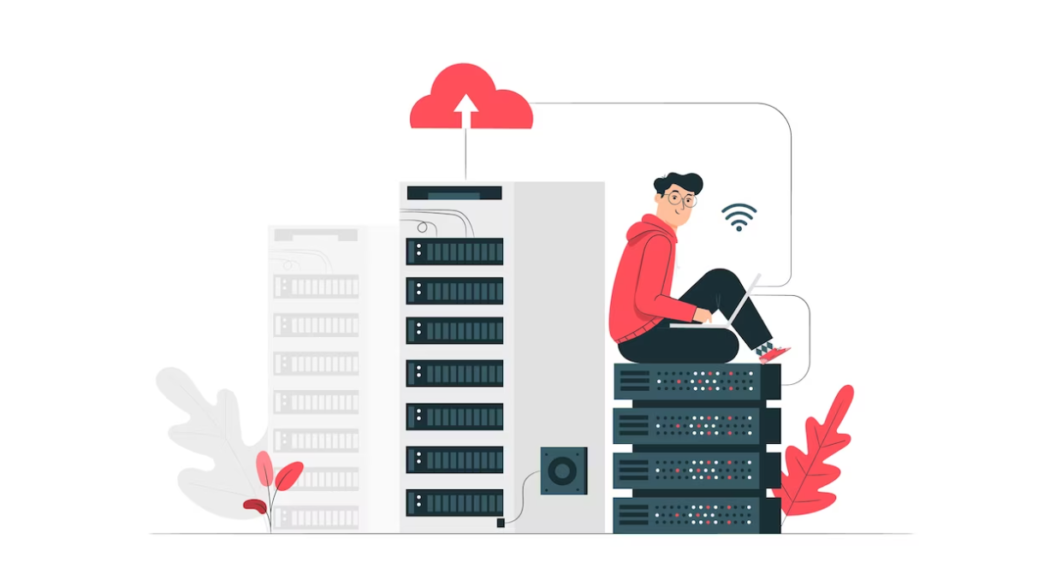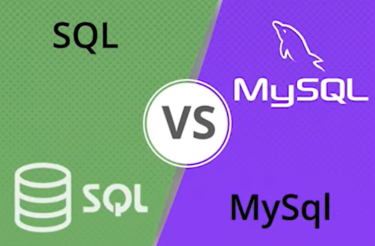In the ever-evolving realm of content management systems (CMS), Umbraco has carved a distinct niche for itself, garnering acclaim for its remarkable attributes, including unrivaled flexibility, seamless scalability, and an intuitive user interface. Yet, to fully unlock the boundless capabilities of this exceptional CMS, you must embark on a quest for the perfect hosting solution. In this meticulously optimized article for search engines, we embark on an immersive journey into the realm of Umbraco hosting. Within these digital pages, we will not only unveil the significance of hosting for Umbraco but also delve into the intricacies of key considerations. Moreover, we will unveil a curated selection of top-tier hosting providers, all in pursuit of ensuring your website thrives and prospers in the vast and ever-evolving digital landscape.
What is Umbraco?
Umbraco is an open-source CMS built on the .NET framework. Known for its simplicity, flexibility, and extensibility, Umbraco has gained popularity among developers and businesses alike. It empowers users to create and manage websites, intranets, and web applications with ease.
Why Umbraco Hosting Matters
Before we dive into the specifics of Umbraco hosting, it’s essential to understand why hosting matters in the first place. Hosting is the foundation upon which your website is built, and it plays a pivotal role in determining factors like speed, reliability, and security. For Umbraco, a CMS that thrives on customization and performance, the choice of hosting is paramount.
- Effective hosting is fundamental to the success of any website or web application, and Umbraco is no exception. Here’s why selecting the right hosting solution is crucial;
- Performance: A fast-loading website is essential for user satisfaction and SEO. Proper hosting ensures that your Umbraco site operates smoothly, even during traffic spikes;
- Security: Hosting providers often offer security features such as firewalls, DDoS protection, and regular security updates to safeguard your Umbraco site against threats;
- Scalability: As your website or application grows, you’ll need hosting that can scale with you. Scalable hosting ensures that you can handle increased traffic and data without downtime;
- Reliability: Reliable hosting ensures that your Umbraco site is available to users 24/7. Downtime can lead to loss of revenue and user trust.
Key Considerations for Umbraco Hosting
- Performance and Speed: Umbraco is renowned for its ability to handle complex websites and high traffic volumes. However, to maintain optimal performance, your provider must offer robust infrastructure with sufficient resources like CPU, RAM, and bandwidth. Look for providers that offer SSD storage, Content Delivery Networks (CDNs), and server locations close to your target audience to ensure fast loading times;
- Scalability: Your needs may change over time as your website grows. Scalability is vital to accommodate increased traffic and resource demands. Choose a provider that offers easy scalability options, such as cloud-based solutions or Virtual Private Servers (VPS), so you can adjust your resources as needed;
- Security: Security is a paramount concern for any website, especially those handling sensitive data or e-commerce transactions. Ensure that your provider offers robust security features, including regular backups, SSL certificates, DDoS protection, and a strong firewall. Additionally, keep your Umbraco CMS and its plugins up-to-date to patch any vulnerabilities;
- Support and Uptime: Downtime can be disastrous for your website’s reputation and user experience. Look for providers that offer high uptime guarantees (99.9% or above) and responsive customer support. Umbraco-specific support can be a bonus as they will have expertise in resolving CMS-specific issues;
- Cost: While you shouldn’t compromise on quality, consider your budget when choosing a provider. Compare pricing plans, and keep in mind that cheap hosting may result in lower performance and limited support. A balanced approach that aligns with your website’s needs is key.

Umbraco Hosting Requirements
To make an informed decision about hosting, you need to understand the specific requirements of hosting Umbraco.
- Operating System: Umbraco is built on the .NET framework and is most commonly hosted on Windows servers. Ensure your provider supports Windows hosting;
- .NET Framework and SQL Server: Umbraco relies on the .NET framework and Microsoft SQL Server for its operation. Check that your hosting plan includes these technologies;
- Server Resources: The server resources you require depend on the size and complexity of your Umbraco project. Factors like CPU, RAM, and disk space play a vital role;
- HTTPS Support: In today’s internet landscape, HTTPS is a must for security and SEO. Choose a provider that offers SSL certificates and supports HTTPS.
Types of Umbraco Hosting
Now that we understand the requirements, let’s explore the different types of options available for Umbraco.
| Hosting Type | Description | Suitable For |
|---|---|---|
| Shared Hosting | The most budget-friendly option where your Umbraco site shares server resources with other websites. While cost-effective, it may not be suitable for high-traffic or resource-intensive projects. | Small Umbraco websites with limited resource needs. |
| Virtual Private Server (VPS) | VPS hosting offers more control and dedicated resources compared to shared hosting. It’s a good choice for medium-sized Umbraco projects. | Medium-sized Umbraco websites and applications. |
| Dedicated Server Hosting | With dedicated server hosting, you have an entire server at your disposal. This option provides the most control and resources, making it suitable for large-scale Umbraco applications. | Large-scale Umbraco projects with high resource demands. |
| Cloud Hosting | Cloud hosting offers scalability and flexibility, allowing you to adjust resources as needed. Many cloud providers support Umbraco hosting. | Umbraco projects of various sizes with fluctuating resource needs. |
Choosing the Right Umbraco Hosting Provider
Selecting the right hosting provider can significantly impact your Umbraco project’s success. Here are some factors to consider when making your choice:
- Reliability and Uptime: Choose a provider with a track record of reliability and high uptime. Downtime can harm your website’s reputation and SEO rankings;
- Performance: Check for providers that offer optimized server environments for Umbraco, ensuring excellent website performance;
- Support for .NET and SQL Server: Verify that the provider supports the .NET framework and Microsoft SQL Server, which Umbraco relies on;
- Scalability: Consider your project’s potential growth and select a provider that allows easy scalability;
- Security Features: Look for providers that offer robust security features, including firewalls, regular updates, and DDoS protection;
- Customer Support: Responsive customer support is essential for addressing any hosting-related issues promptly;
- Budget: Compare pricing plans and ensure they align with your project’s budgetary constraints.
Setting Up Umbraco on Your Chosen Hosting
Once you’ve selected a provider, it’s time to set up Umbraco. This involves:
- Domain and DNS Configuration: Point your domain to your provider’s servers and configure DNS settings;
- Database Setup: Create a SQL Server database for Umbraco and configure connection strings;
- Umbraco Installation: Download and install Umbraco on your server, following the installation wizard;
- Content Management: Start building your website or application, using Umbraco’s user-friendly interface.
Best Practices for Umbraco Hosting

To ensure the success of your Umbraco project, follow these best practices:
- Regular Backups: Schedule regular backups of your Umbraco site to protect against data loss;
- Security Updates: Keep Umbraco, plugins, and the server environment up to date to mitigate security risks;
- Performance Optimization: Optimize your site’s performance by minimizing unnecessary plugins and resources;
- Monitoring: Implement monitoring tools to detect and address issues promptly;
- Scalability Planning: Plan for future growth and ensure your hosting can accommodate it.
Top Umbraco Hosting Providers
| Hosting Provider | Key Features and Benefits |
|---|---|
| Azure App Service | Managed hosting on Microsoft’s Azure platform. Specifically designed for Umbraco with scalability, security, and Azure service integration. Ideal for Umbraco projects that require seamless Azure integration. |
| Umbraco Cloud | Umbraco’s own cloud hosting platform tailored for Umbraco CMS. Offers simplified deployment, automatic updates, and a developer-friendly workflow. Best suited for those who prefer an all-in-one Umbraco solution with a focus on ease of use. |
| HostForLIFE.eu | A European hosting provider specializing in Umbraco hosting. Provides optimized servers, dedicated support, and a user-friendly control panel. Ideal for European-based Umbraco projects seeking specialized hosting. |
| SiteGround | Known for excellent performance, security, and support. Offers various hosting plans including shared and managed WordPress hosting, adaptable for Umbraco. Suitable for those who value reliability and a range of hosting options. |
| A2 Hosting | Provides high-speed hosting with SSD storage and strong security features. Offers shared, VPS, and dedicated hosting options, accommodating various Umbraco project sizes. Ideal for those who prioritize speed and security in their hosting choice. |
Conclusion
Choosing the appropriate hosting provider is a pivotal stride in guaranteeing the triumph of your Umbraco-driven website. It’s imperative to contemplate your project’s precise requisites, evaluate your financial resources, and opt for a provider that harmonizes with your objectives. Prioritizing aspects such as performance, scalability, security, and support will enable you to unleash the complete capabilities of Umbraco and craft an effortless and captivating online journey for your visitors.










